FPM, FKM and Viton® – totally confused?
Yes, trying to find your way around the terms used for fluoro rubber and what they actually cover can be challenging. When faced with a choice between the three, it can quickly become confusing to understand what differentiates them – and why it matters. Is there really a difference between FPM and FKM, or are they just different names for the same thing? And what makes Viton® so special?
In this miniguide, we cover the key differences and similarities between FPM, FKM and Viton® so you can easily make the best choice when it comes to fluoro rubber in sealing solutions – ensuring both reliability and durability in your systems.
Read along and learn more!
What is fluoro rubber?
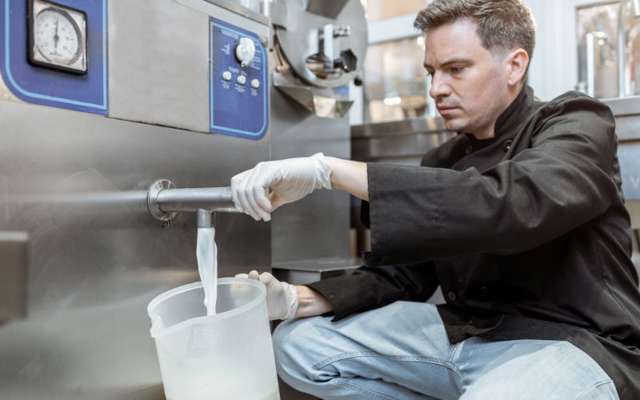
Fluoro rubber is a synthetic elastomer primarily used in sealing solutions, gaskets and O-rings in the process industry. The material is known for its high temperature resistance and chemical resistance – properties that make it ideal for demanding applications with high sealing technology requirements. For example, this could be in gaskets for pasteurizers in the dairy or for seals in pharmaceutical equipment such as mixers and filling machines.
Fluoro rubber is a highly robust material with a long service life, even under very demanding conditions. In applications where reliability and continuous operation are important – such as in food production or pharmaceutical processes – fluoro rubber helps ensure that systems operate efficiently and without interruption. The material's ability to withstand extreme loads makes it an essential choice for sealing solutions that require both durability and high performance.
Two designations, one material: FPM and FKM
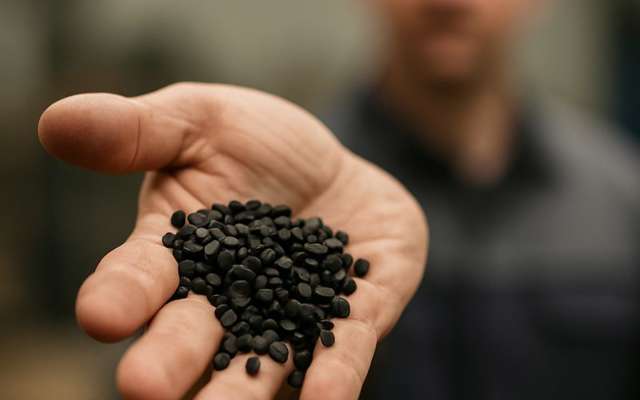
When we talk about fluoro rubber, we often come across the terms FPM (Fluor-Polymer-Material) and FKM (Fluor-Kautschuk-Material). Despite the different names, both refer to the same material. The difference is simply in the standards: FPM is used in ISO standards, while FKM is used in ASTM standards. This means that the choice of designation depends on the region and the specific standards used in a given industry. The difference between FPM and FKM is therefore primarily terminological and has no practical importance in most applications.
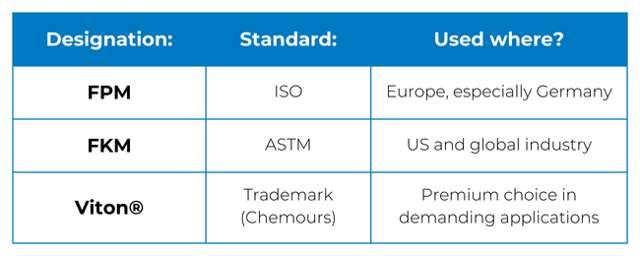
When standard solutions are not enough: Viton®
Although both FPM and FKM are well suited for various demanding applications, there are cases where they’re insufficient. This is where Viton®, developed by the American chemical company Chemours, comes into play.
Viton® is a high-performance variant of FKM with significantly improved properties. It can withstand extreme temperatures – up to 300°C – and is therefore used in applications with violent temperature changes and thermal shocks, where ordinary fluoro rubber falls short. This makes the material indispensable in processes where temperature variations are frequent, such as in steam or heat treatment systems in the food and pharmaceutical industries. If CIP cleaning is part of the operation, Viton® stands up to certain CIP chemicals that FPM and FKM cannot withstand.
At the same time, Viton® is significantly more resistant to chemicals compared to standard FKM. It stands up to acids, alkalis and solvents – even with prolonged exposure – minimizing the need for frequent replacement. This contributes to longer seal life and a better operational economy with less need for service and maintenance.
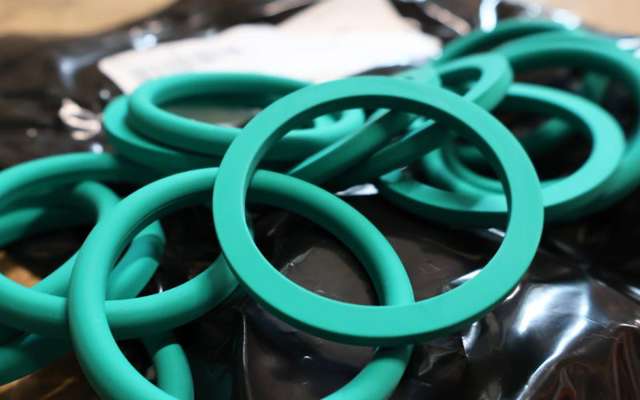
Last but not least, Viton® is characterized by its lower permeability to gases. This makes it suitable for applications involving pressure and vacuum systems, for example in chemical plants. Especially in situations where precision and tightness are critical, Viton® helps to maintain reliability and reduce the risk of leaks. That's why many choose the material when FPM or FKM doesn’t meet the high requirements for both temperature and chemical resistance that many processes in the industrial sector demand.
The role of fluoro rubber in our product range
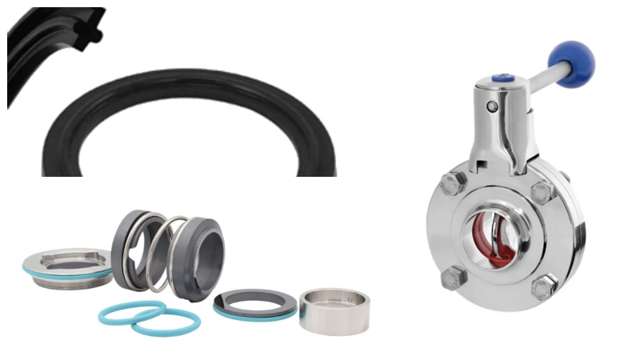
Fluoro rubber is an essential part of many of the products we offer. From mechanical seals to butterfly valves, camlock gaskets and push-in fittings, fluoro rubber plays a key role in ensuring tight, durable and reliable solutions. Here's a look at how fluoro rubber is used in our product range:
- Mechanical seals
Fluoro rubber is a key component in our mechanical seals. In rotating applications such as pumps, turbines, compressors and agitators, it helps ensure a stable seal – even at high temperatures and contact with aggressive media. The material's chemical resistance and heat resistance make it ideal for continuous operation under load. - Butterfly valves
In butterfly valves, fluoro rubber provides a tight and robust seal that can withstand both high pressure and aggressive liquids. This makes them suitable for flow control in process environments where both temperature and media place high demands on the sealing surfaces. - Camlock gaskets
Fluoro rubber in Camlock gaskets ensures high resistance to both pressure and chemicals. This makes them ideal for transporting liquids, gases and powders in industries where connections must be secure - even under demanding conditions. - Stainless push-in fittings
Fluoro rubber ensures reliable and tight connections in stainless push-in fittings, which are used to connect hose tails and hoses in industrial systems with high demands on hygiene and temperature tolerance. This makes them ideal for both pneumatic and hydraulic applications where leak-free assembly is essential.
The right seal starts with the right sparring

Do you need new sealing solutions – and are you still unsure what role fluoro rubber should play in your choice? Then get in touch with us. We’re happy to advise you on both material selection and specific products that match your applications. Call us on +45 7020 0422 or send an email to inquiry@alfotech.eu and we'll get back to you shortly – and in many cases we can deliver within a few days.
 da
da
 de
de
 en
en
 sv
sv
